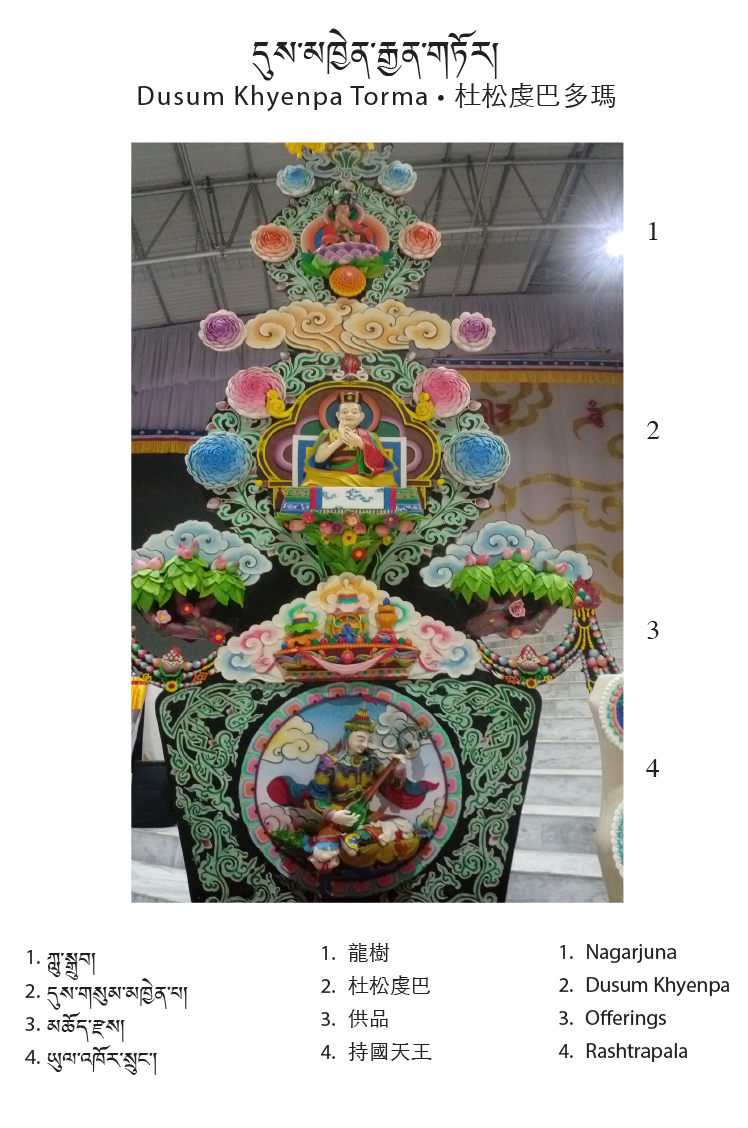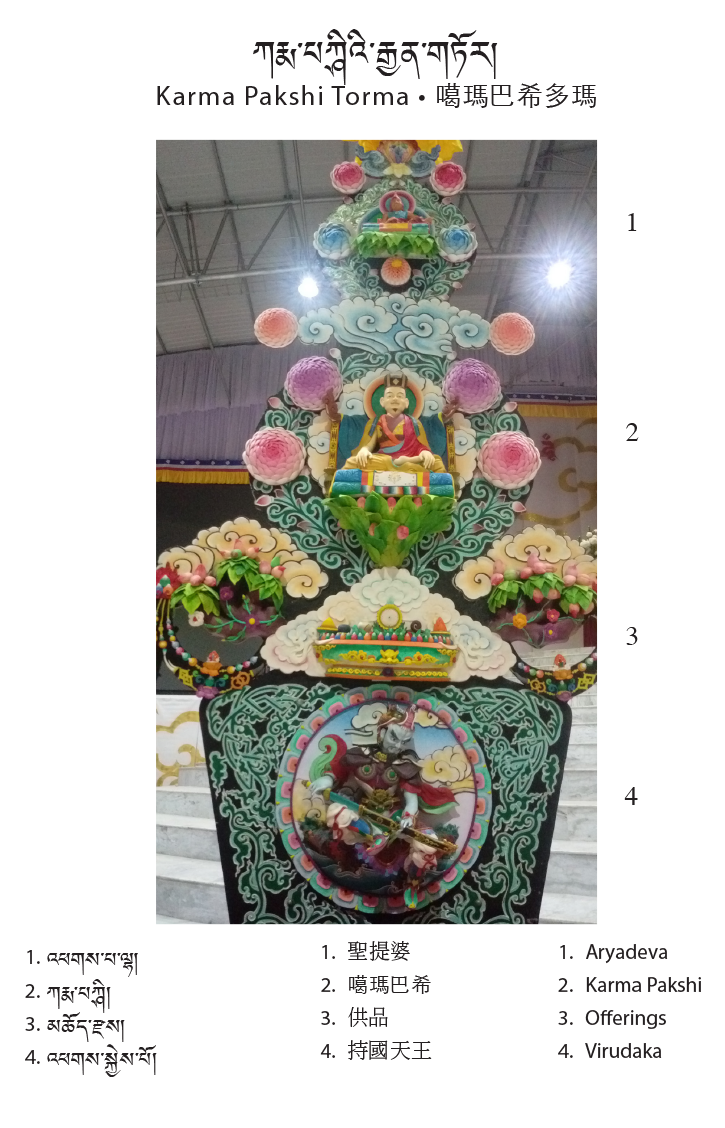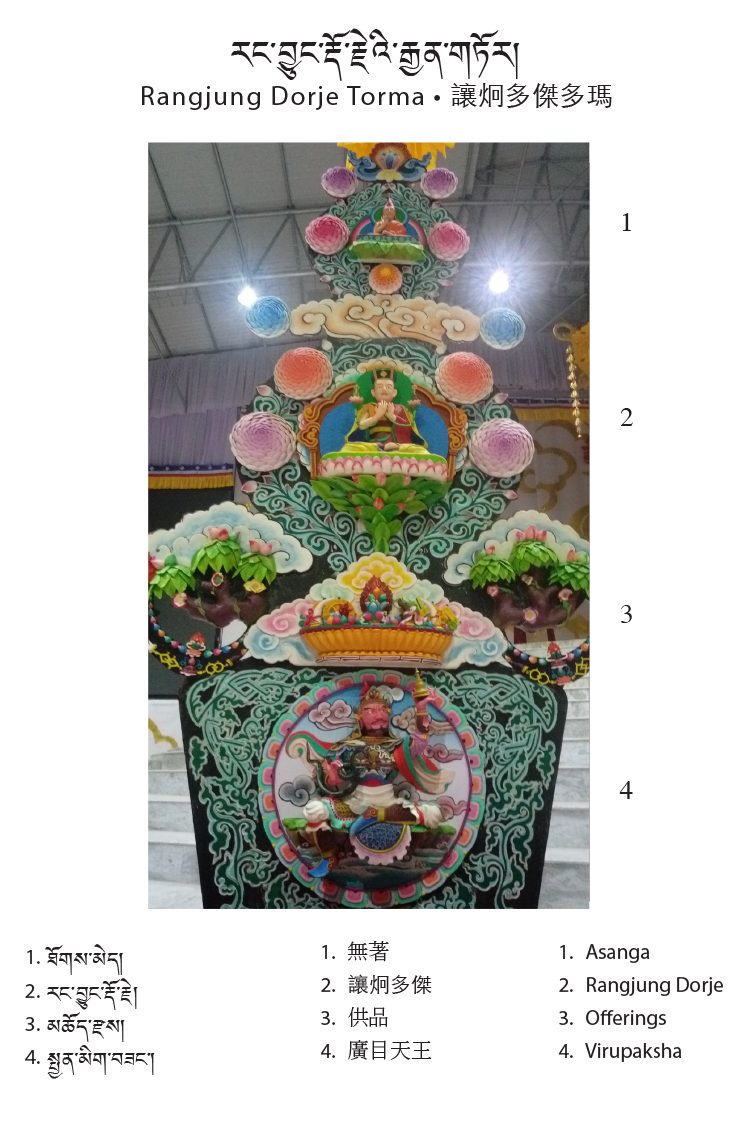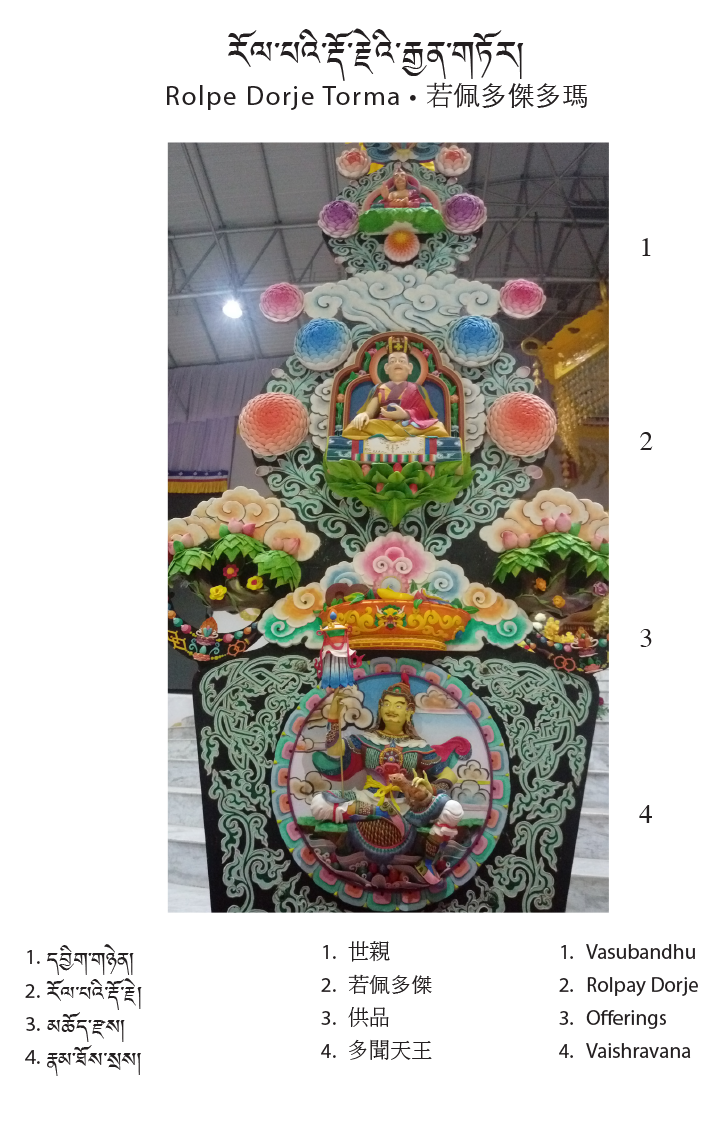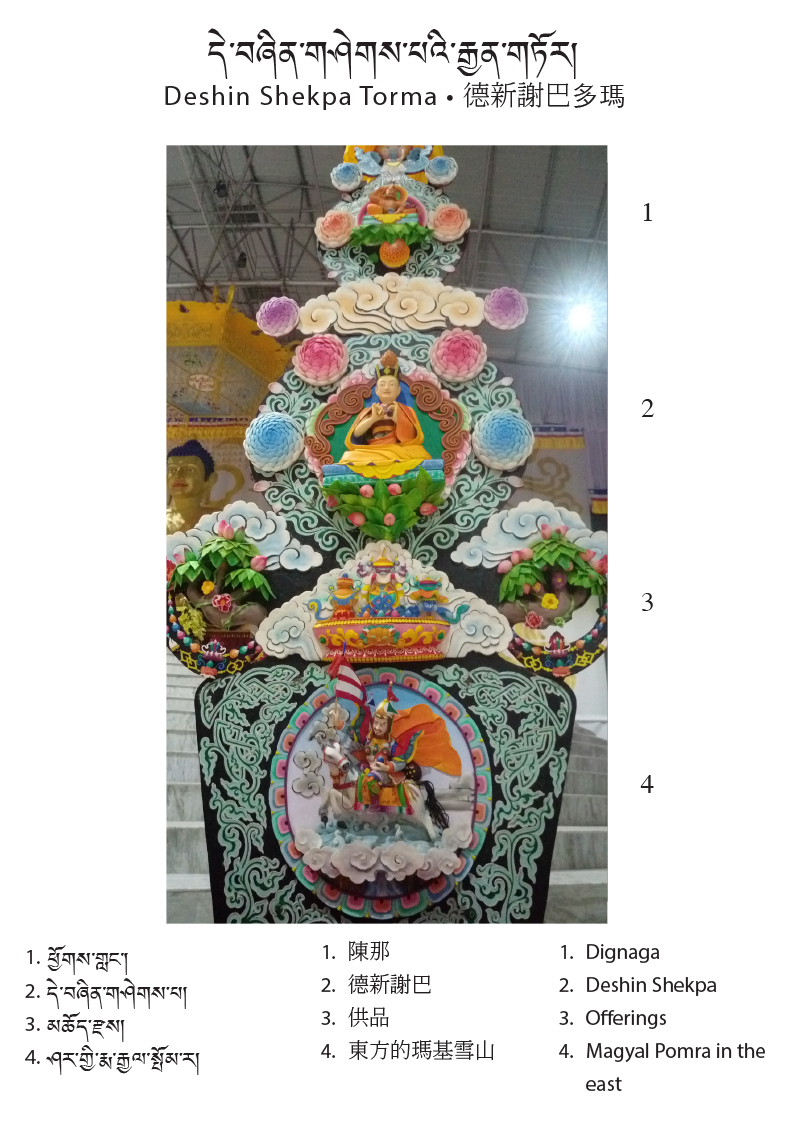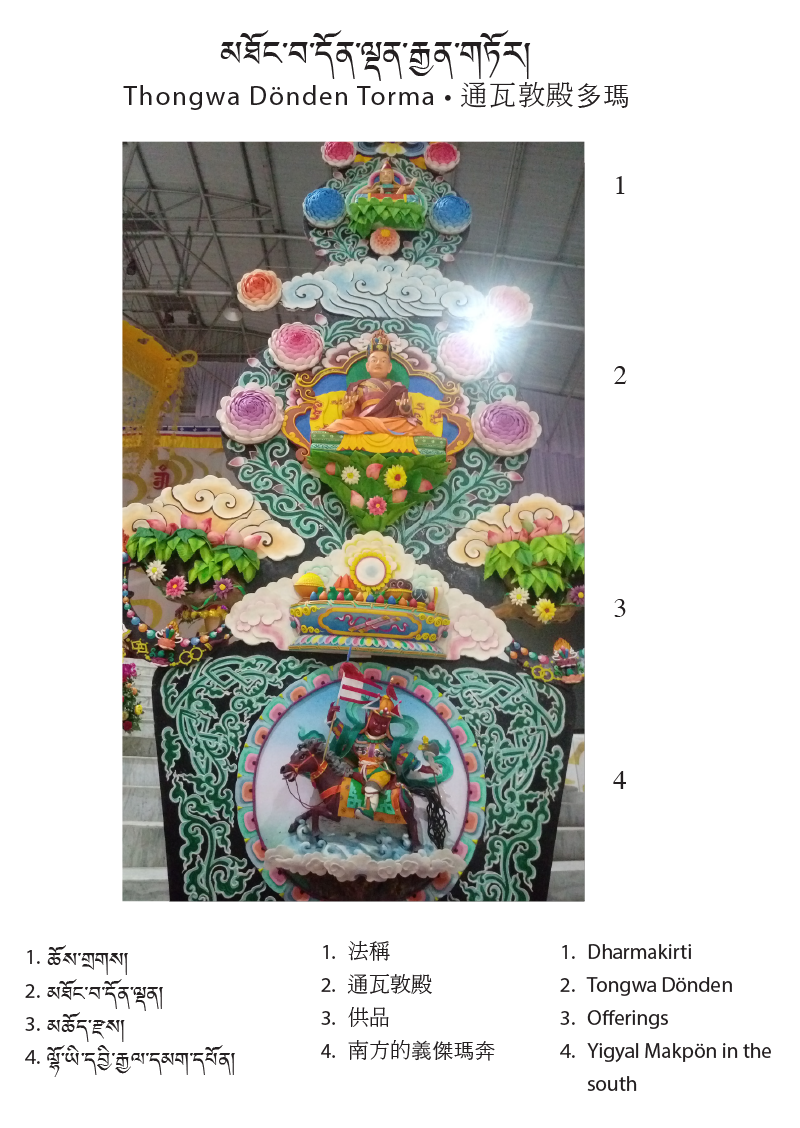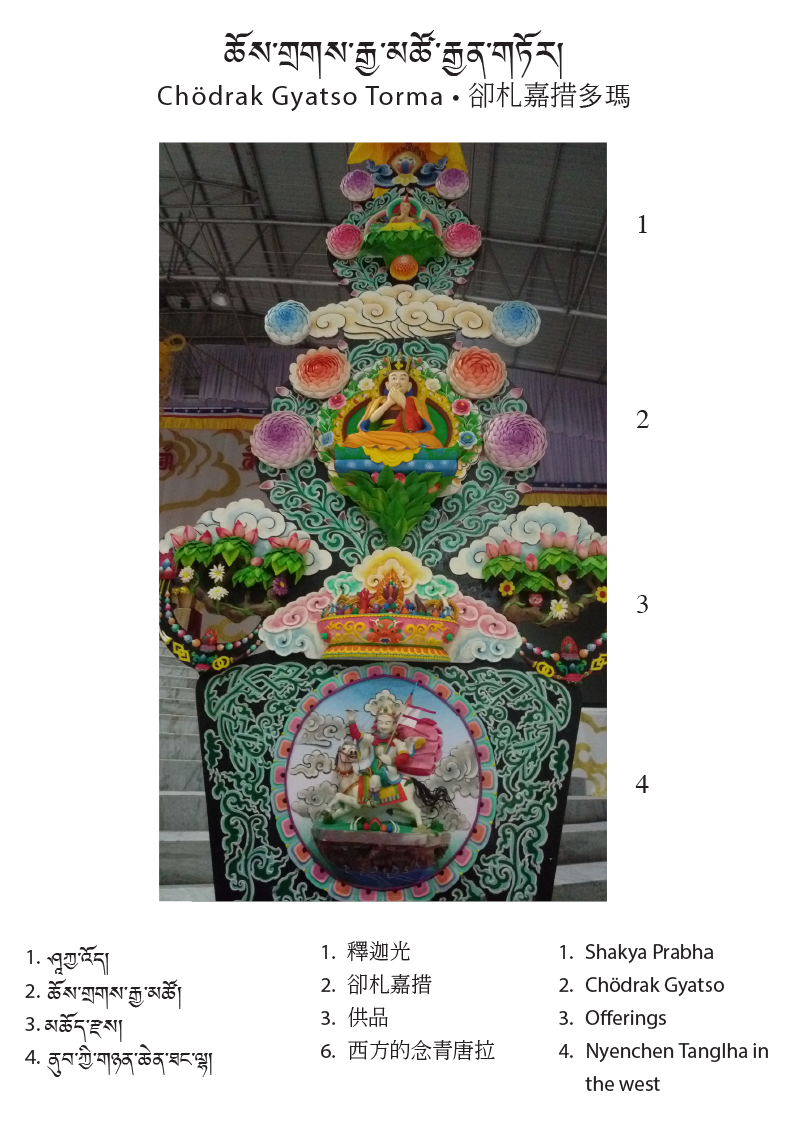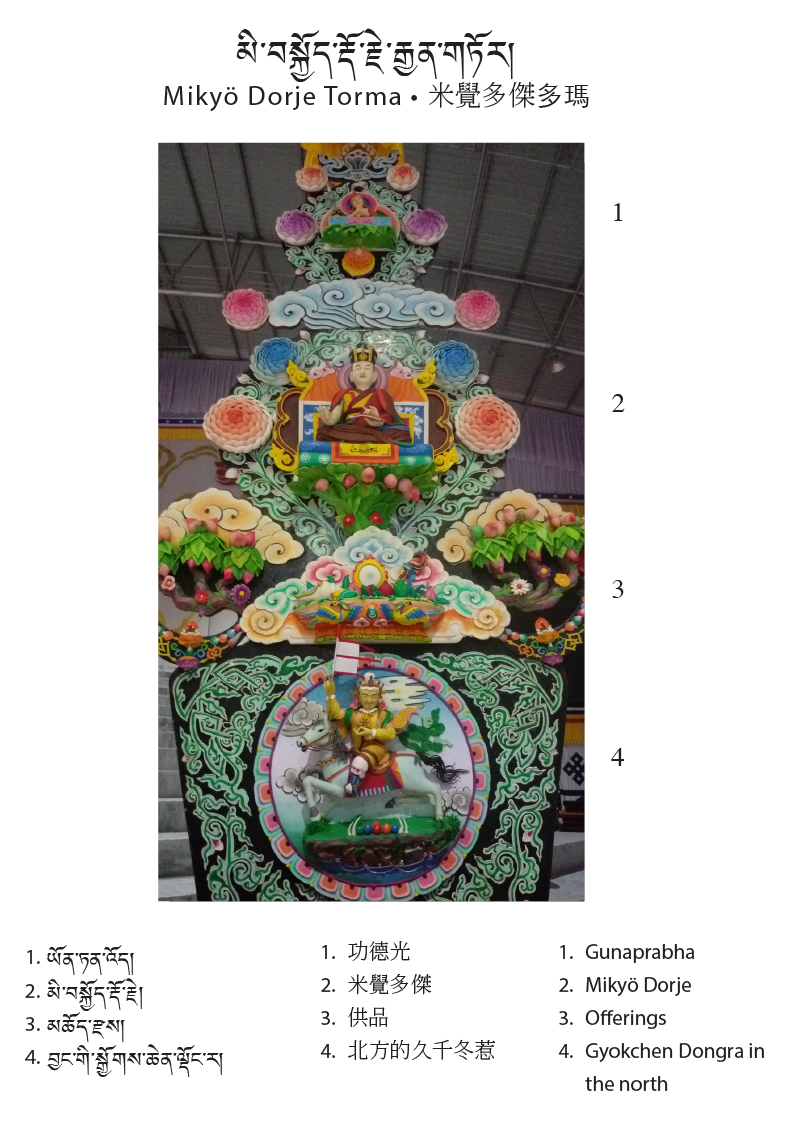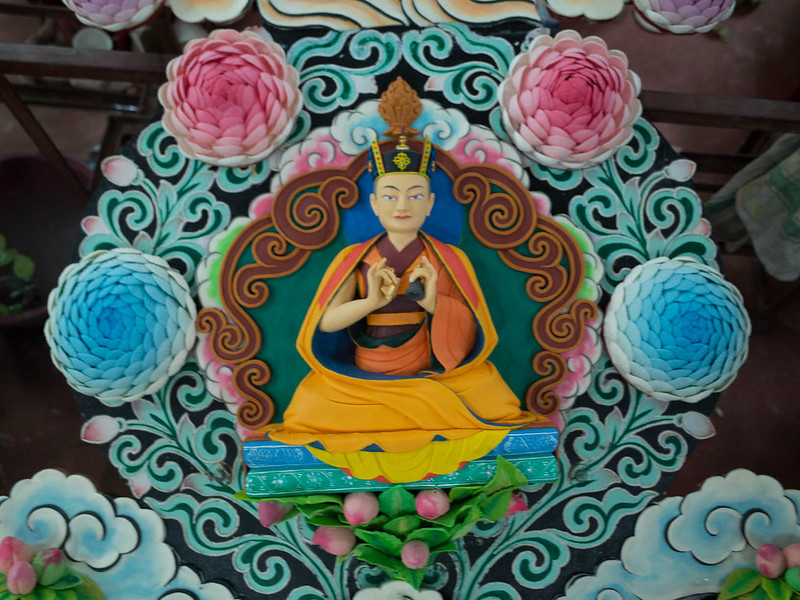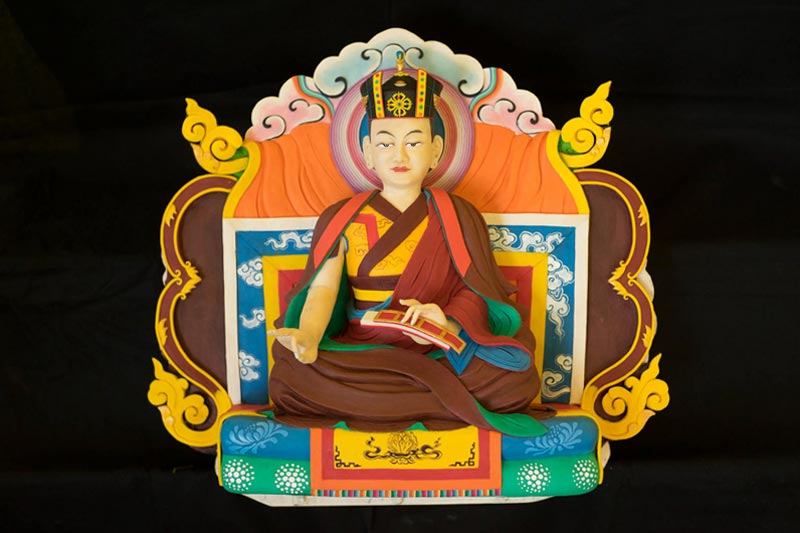
A special feature of the annual Kagyu Monlam are the elaborate butter sculptures designed by the 17th Gyalwang Karmapa, Ogyen Trinley Dorje. These beautiful tormas were featured in the documentary, Torma: the Ancient Art of Tibetan Butter Sculpture, completed in 2014 under the guidance of His Holiness. The film highlights the extraordinary level of craftsmanship that goes into creating the wax butter sculptures. Even though butter sculpture exists in other cultures, the Tibetans have taken the art form to dizzying heights.
Long before the Karmapa took over direction of the Monlam in 2004, he had begun reviving the Kamtsang traditions of Marpa, Mila, and Gampopa. The Kamtsang tormas were one of the many traditions he set about revising. The first tormas he designed for the Monlam in 2005 honored the founding Karma Kagyu masters, but in subsequent years, he has expanded the subject matter significantly. Each year he chooses a different theme, but the same six torma supervisors return to train the aspiring junior artists: monks and nuns culled from Karma Kagyu monasteries and nunneries throughout the Himalayan region. This year there were 65 artists working in total: 53 monks and 12 nuns. They began on January 24, 2017 and finished just in time to set up the three-tiered altars for the first day of the Monlam.
The altars span the Pavilion stage and are notable for their simplified elegance. There are eight large tormas, four on the left and four on the right, with three main sections each.The butter sculptures reside on the upper tier of the shrine, flanked on either side by red and yellow flower arrangements in golden vases. On the middle shelf are the shalzes, impressive with their sculpted ornaments representing the eight auspicious substances, the eight auspicious symbols, and the seven articles of royalty. Each shalze sits on its own carved, wooden stand. On the bottom shelf of each shrine are seven, large ornate bowls filled with offering water.
The central theme of this year’s tormas are the first eight Karmapas; their depictions run across the center. On the upper level of the tormas are the Gyen Truk Chok Nyi (the Six Ornaments and the Two Supreme Ones). The six ornaments are: Nagarjuna, Aryadeva, Asanga, Dignaga, Vasubhandu, and Dharmakirti; the two supreme ones are Shakyaprabha and Gunaprabha.
Across the bottom section of the tormas, are representations of eight kings: the Four Guardian Kings, and the Four Mountain Kings of Tibet.
The Four Guardian Kings are sometimes called the Four Heavenly Kings, and are found in Indian, Chinese, and Tibetan Buddhism. They reside on the innermost ring of islands (the lower slopes), around the four-sided mythical Mount Sumeru, the center of the idealized Buddhist and Hindu worlds. Their names are: Vaishravana (North), Dhitarashtra (East), Virudhaka (South), and Virupaksha (West). Commonly found as mural paintings in the entrance-ways of Buddhist temples, they are the guardian kings of the four directions.*
The Four Moutain Kings of Tibet are the powerful, fierce protector gods associated with famous moutains in Tibet. In the East, in Amdo is Majel Pumra; in the West is Nyenchen Thangla, in the South in southern Kham is Yejel, and in the North in northern Kham is Jogchen Dongrel. The worship of mountain gods was one of the most important forms of nature worship among ancient Tibetans and has continued to the present day. Here, the torma artists have done justice to their haughty magnificence. These eight tormas exhibit museum quality artwork but will most likely be destroyed at the end of this year’s events, a powerful reminder of the impermanence of all conditioned phenomena.
On the last day of the morning teachings on Potawa’s soliloquy, the Karmapa spoke about his decision to allow the public to go up to the stage at lunch time and take photos of the tormas with their mobile phones. (Mobiles are usually banned during the Kagyu Monlam). Then he spoke a bit about the torma designs this year: “Making tormas is actually a Tibetan tradition within all of the different dharma lineages. It is part of the monastic culture. So for this year during the Kagyu Monlam, because we have had the teachings on the Four Sessions Guru Yoga, I thought that in connection with that we should have the tormas of the eight Karmapas--from the First Karmapa Dusum Khyenpa to the Eighth Karmapa Mikyo Dorje. Above them we have the Six Ornaments and Two Supreme Ones. This means the great scholars of India. First we thought of putting up the eight great Mahasiddhas, but some of them are rather bizarre so I thought ‘I better not do that.’ Then I thought about putting up the eight forms of Guru Rinpoche and one of those is kind of bizarre, so better not. So I decided to put up the eight scholars known as the Six Ornaments and the Two Supreme Ones to make a total of eight. Then below them, on the right hand side, we have the Four Great Kings. During the Buddhas time he commanded the Four Great Kings to protect the teachings of Buddhism so they are general protectors of the Dharma. On the left hand side we have the four great protector deities of Tibet. We haven’t had any Tibetan deities before so I thought we should praise them a little bit this year by giving them a higher place. And so as you view them, you should feel it’s okay to take pictures. This year I’ve insisted. I’ve said that everyone should be allowed to carry their mobile phones. ‘It wouldn’t be acceptable; you must allow phones.’ So you’ve all bought your phones and you have been very good about following the rules….so when you come and view the altars, I think it is fine to take photos of the tormas and the offerings.”
*Himalayanart.org
